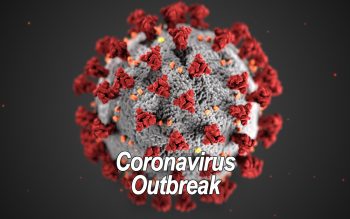By Mike McGann, Editor, The Times @mikemcgannpa
 The number of cases of COVD-19 continued its slow downward trend — some days up, some days down, but the overall number gradually going down — Tuesday, as state officials moved to address some localized food shortages by allowing food and ingredients originally intended for the food service industry to be sold by restaurants and grocery stores.
The number of cases of COVD-19 continued its slow downward trend — some days up, some days down, but the overall number gradually going down — Tuesday, as state officials moved to address some localized food shortages by allowing food and ingredients originally intended for the food service industry to be sold by restaurants and grocery stores.
The state Department of Health (DOH) reported 1,102 new cases of the virus, bringing the state’s total to 44,366. DOH said Wednesday it had worked to reconcile the death total in the state, finding 479 previously unaccounted for fatalities, bringing the state total to 2,195 deaths from COVID-19.
Officials continued with a familiar — and possibly identical — refrain from the last few days, cautioning people to continue staying home and to use social distancing.
“As we see the number of new COVID-19 cases continuously change across the state that does not mean we can stop practicing social distancing,” Sec. of Health Dr. Rachel Levine said. “We must continue to stay home to protect ourselves, our families and our community. If you must go out, please make as few trips as possible and wear a mask to protect not only yourself, but others. We need all Pennsylvanians to continue to heed these efforts to protect our vulnerable Pennsylvanians, our health care workers and frontline responders.”
Chester County’s Health Department reported 50 new cases, Tuesday. It now says 102 deaths have occurred in the county because of COVID-19.
As the state moves toward reopening portions of the state — Chester County and the southeast will likely among the last areas reopened — DOH is working on a contact tracing plan to be able to track and manage COVID-19 cases in the commonwealth. More details are expected later this week.
Meanwhile, state officials offered guidance to new federal Food and Drug Administration temporary rules to allow the sale of products without nutritional labelling — products largely intended for the food service industry. Supermarkets and their suppliers have struggled to keep up with the increased demand because so few people are eating restaurant food during the pandemic.
“As restaurants comply with orders to offer carry-out services only, many find themselves with excess prepared food and ingredients,” said state Agriculture Secretary Russell Redding. “In an effort to curb food waste, state food safety inspectors will allow restaurants and food manufacturers the flexibility to sell bulk foods and ingredients to their customers without the usual labeling requirements.”
The temporary policy by the FDA allows restaurants to sell ingredients and bulk prepared foods direct to consumers, and allows food manufacturers to distribute foods intended for restaurant-use to grocery stores for purchase by consumers. This means grocery shoppers may see industrial sized bags of soup or other prepared items, with non-traditional nutrition information labels. Eggs by the flat, instead of by the dozen, have also been approved by a separate guidance document from the FDA. This temporary flexibility also allows restaurants to sell meal kits or raw ingredients in addition to their regular menu of takeout items.
“We appreciate all the great work being done by our industry partners to ensure the food supply remains safe and strong for Americans during these challenging times,” said Pennsylvania Food Merchants Association President & CEO Alex Baloga. “We value and support the flexibility of the U.S. Food and Drug Administration and the Pennsylvania Department of Agriculture to temporarily allow restaurants to sell bulk foods and ingredients to consumers, as well as thousands of our member grocery stores, to make sure the shelves continue to be stocked for millions of Pennsylvanians. We also understand and appreciate the flexibility in menu-labeling requirements through the duration of the COVID-19 public health emergency.”
Also, as state officials work to mitigate the spread of the 2019 novel coronavirus, the Wolf Administration said Wednesday it has made it a priority to address food insecurity in the commonwealth by protecting our local supply chain, advocating for necessary waivers and resources, and ensuring equal access to healthy food for all.
“As we seek to ensure health and safety for Pennsylvanians and work together to save lives as we mitigate against COVID-19, food has never seemed more important,” said Gov. Tom Wolf. “We depend on farmers to continue to work the land, processors to make products, grocery workers to be there at check out, and volunteers to support our food banks and pantries.”







